Election 2021: PCC role in spotlight amid Bristol protests
From the Edward Colston statue toppling during a Black Lives Matter demo to violent clashes over the Police and Crime Bill, Bristol has seen major protests in the past two years.
These events have put policing, policy and power in the spotlight, especially for young people, whose voices - as the flag-bearers for all sorts of social justice initiatives - need to be heard, according to University of Bristol professor of politics Simon Tormey.
Ahead of the Gloucestershire, Wiltshire and Avon and Somerset police and crime commissioner (PCC) elections on 6 May, the BBC asked young voters in the area what they know about the role.
 Simon Holliday
Simon Holliday
'It's not something I've heard of'
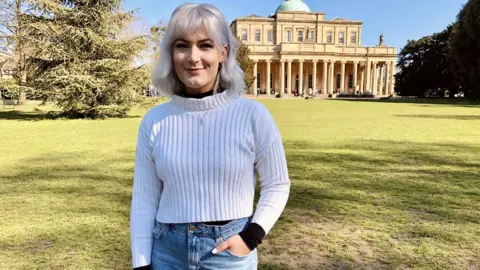
A PCC is not a serving member of a police force but they are voted for, by the public, to hold forces to account.
Megan Davis, 24, from Gloucestershire, said it was "incredibly important people are better informed" about PCCs.
"It's not something I've heard of and I would like to think that I'm politically aware and active," she said.
"People need to be made more aware otherwise they may turn up to the ballot unsure of how to cast their votes, which means they won't be voting for what they believe in and that's unfair on constituents."
Speaking about the policing of the Kill The Bill protests, which she took part in in both Bristol and Cheltenham, she added: "I agree with people who criticised the policing in Bristol because it was incredibly violent, but then in smaller rural communities like Cheltenham the policing was more of a community presence which was positive, and from that we can see how policing can be different.
"People who attended the more recent protests are incredibly angry at the police and their violence and how they treated women at [the Sarah Everard vigils] needs to be changed, and it seems that change could be made by voting."

'The police are doing a great service'
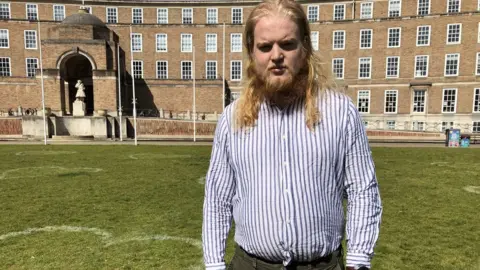
Bristol student Robert Graham, 26, said: "The protests weren't right and police got hurt so we need a PCC who isn't afraid to defend the police and speak out."
He wants to see a PCC that will offer "more engagement on local crime issues and who will be seen commenting on police activity more".
"I think the police did a great service during the protests, stopping people from doing criminal damage but, from the new PCC, I do want someone who will put even more police on the streets to stop crime from happening to make the streets feel safer," he added.
"That would also help if any violent protests happen again."

'People should be informed more'
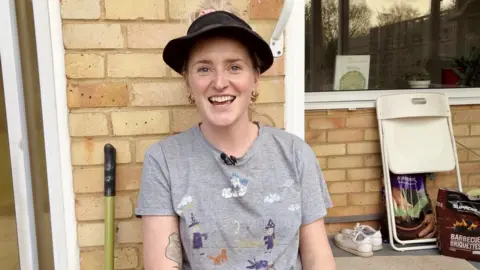
Jemima Brett, 27, said past experiences with police had made her feel "distrust" towards them, and is unsure how she will vote.
The care worker from Bristol said: "I feel negative about police forces in general because of how I have seen them treat people close to me badly in the past.
"I will be voting in the elections but I don't know much about the PCC role.
"It's clearly important, so people should be informed more.
"There should be more posters on the streets and things online about it, not just a letter through the post because people don't always read that stuff."

'Police funding doesn't go where I want'
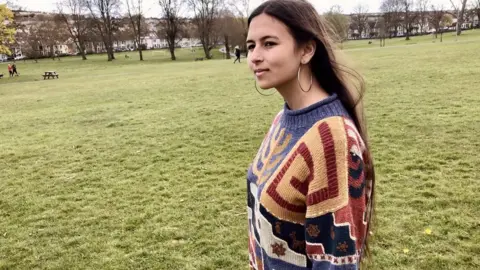
Bristol environmental activist Mya-Rose Craig, 18, said she did not know about the PCC role and was "surprised" to learn about it.
She said: "I've always felt like the police is a very separate entity from the people and thought we didn't have a say in anything.
"I will be voting on that now because police funding isn't necessarily going where I would choose for it to go.
"Personally I would prioritise money going into communities rather than any more being spent on riot gear and riot vans, so I will vote based on that."

'I'm not invested in it'
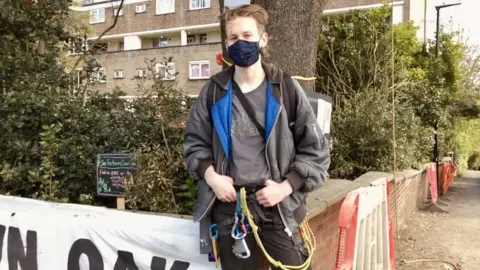
Bristol engineer and activist Owen, 20, said he did not think the role will help make the changes he thinks are "necessary" to make his local police force better.
He said: "I have a lot of thoughts about the way that policing is done in Bristol and the policing model of the UK in general because I think that police forces consistently get things wrong, and I don't think the PCC role is going to change that.
"So, personally I'm not massively invested in it."

Analysis: West of England Political Editor Paul Barltrop
The protests on the streets of Bristol have focused much attention on policing. They have also exposed differences between the candidates who seek to become the next Avon and Somerset Police and Crime Commissioner.
And, in a contest where all too often the contenders want similar things (basically "more police, less crime"), it is refreshing to see some clear blue water opening up.
One snag though; a PCC does not decide how a protest is policed. She or he sets the budget for the force and agrees its priorities.
But operational matters, such as how officers handle late-night confrontations with demonstrators, are determined by the chief constable.
They do though have one other significant responsibility which can influence the way policing is carried out. The PCC appoints the chief constable. That is a fairly rare event, but it will be one of the first challenges awaiting the new PCC, with Avon and Somerset's Andy Marsh retiring in July.

